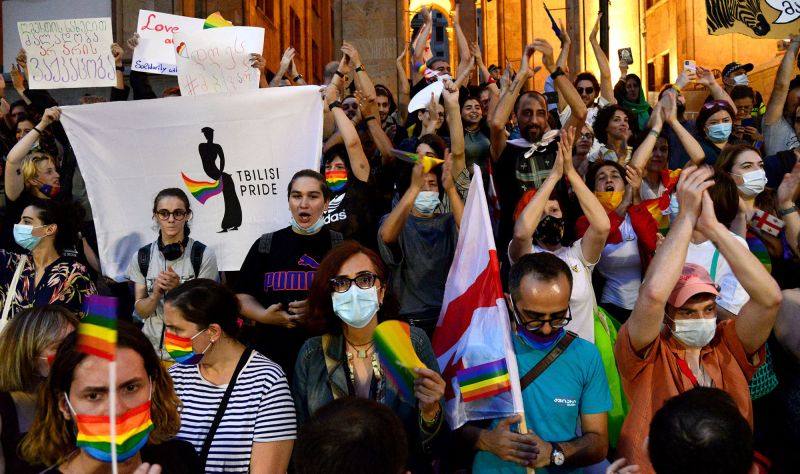
Breaking News: Georgian Parliament Speaker Enforces Controversial Restrictions on LGBT Rights
In the midst of rising tension and complex socio-politicial climate, the Georgian Parliament Speaker has recently signed a new law that significantly curtails the rights of sexual minorities in the country. This legislative move has sparked a wave of international criticism and set a disconcerting tone for human rights issues in Eastern Europe.
In essence, the law implemented by the Parliament Speaker aims to restrict the rights and freedoms granted to the lesbian, gay, bisexual, and transgender (LGBT) community in Georgia. One of the critical aspects of this law disallows individuals from the said community to partake in public demonstrations and rallies advocating for their rights, besides barring them from expressing their orientation openly. This paints a stifling picture of repression and lack of freedom for the LGBT community in Georgia.
Despite the country decriminalizing homosexuality in 2000 and anti-discrimination laws enacted during its European Union integration process, today’s scenario represents a stark deviation from the path of progress. The law circumvents the nation’s previous commitment to human rights and its endeavours to create an inclusive society that is respectful of all its citizens, regardless of their sexual orientation or identity.
An understanding of the Georgian societal and political landscape is necessary to grasp the implications of this law. Georgia, predominantly Orthodox Christian, is often conservatively inclined in matters of sexual orientation and identity. The Orthodox Church, which wields significant influence over public opinion, has routinely expressed its opposition to homosexuality. This societal attitude has, in some instances, lead to vehement public backlash and hate crimes against members of the LGBT community.
Therefore, with the implementation of this new law, fear and uncertainty arise amongst the LGBT community and human rights activists. A significant concern is the potential surge in discrimination, harassment, and violence towards the LGBT community, as the law indirectly endorses homophobia and transphobia. Moreover, the freedom of expression, assembly, and association, central to any democratic society, is under significant jeopardy for these individuals.
Beyond its national implications, this law has also cast an international spotlight on Georgia. Various global human rights organizations and foreign governments have expressed their disapproval of this regressive step. The European Union, of which Georgia is an aspiring member, has stressed on the importance of human rights, including LGBT rights, as a key condition for integration.
The path that the Georgian Parliament Speaker has chosen through the implementation of this law is marking a phase of regression in human rights. Critics, activists, and organisations worldwide are voicing out their concerns and
